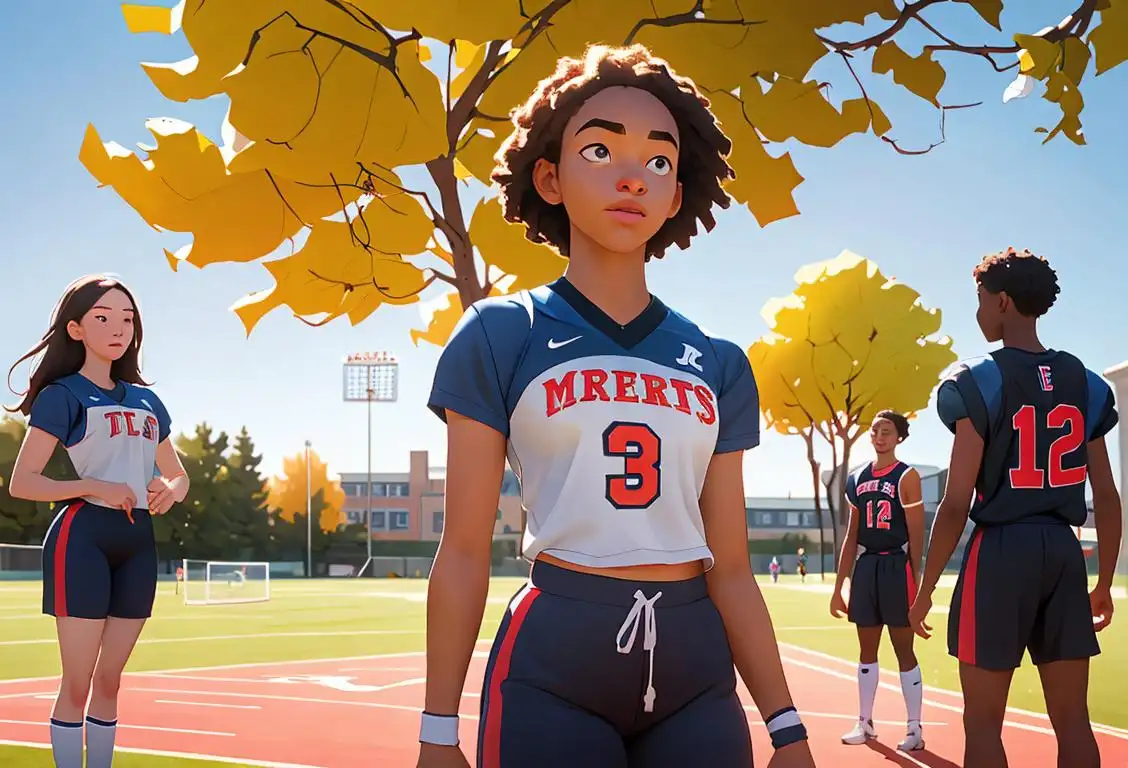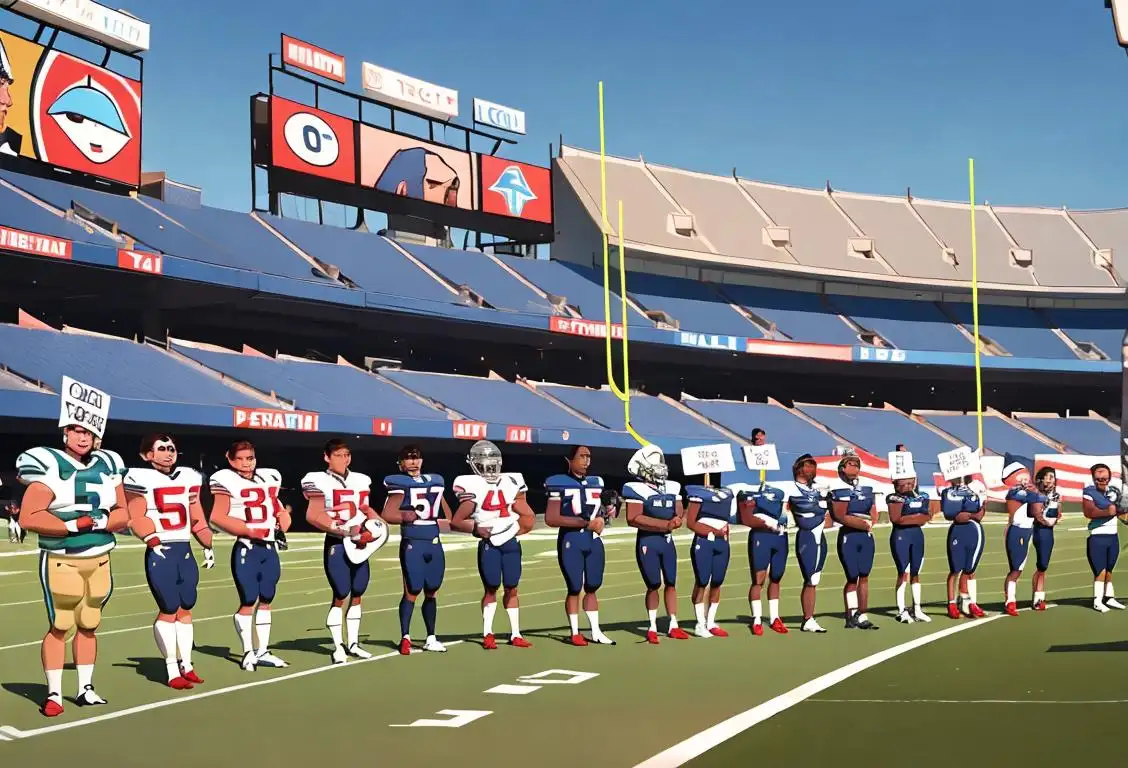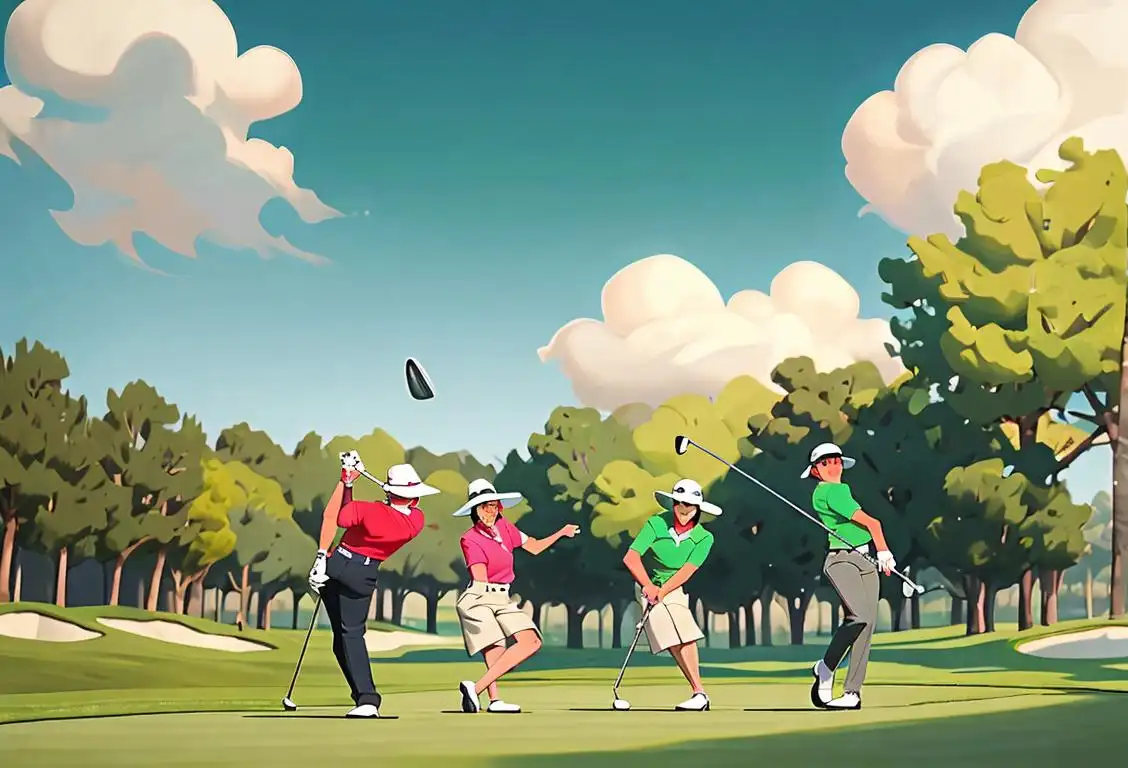National Student Athlete Student Athlete Day

Hey there, sports fans! Get ready to lace up your sneakers and put on your game faces because it's National Student Athlete Day! This is the day to celebrate all those hardworking student athletes out there who balance their academic pursuits with their love for sports. So let's dive into the exciting world of student athletes and explore the history behind this special day.
When is Student Athlete Student Athlete Day?
It's national student athlete student athlete day on the 6th April.
The Birth of National Student Athlete Day
Every year on April 6th, we honor the incredible student athletes who demonstrate excellence both in the classrooms and on the playing fields. National Student Athlete Day was created back in 1987 by the National Consortium for Academics and Sports (NCAS) to shine a spotlight on the achievements of these remarkable individuals.
The NCAS recognized the importance of celebrating the dedication, hard work, and commitment exhibited by student athletes across the country. They wanted to emphasize that being a student athlete is about more than just physical prowess - it also requires exceptional discipline, time management skills, and a drive for success.
A Day of Recognition
From elementary schools to colleges, National Student Athlete Day is celebrated in various ways. Some educational institutions hold special assemblies or award ceremonies to honor their outstanding student athletes. Others organize fun sports events to promote physical fitness and teamwork among students.
Coaches, teachers, and parents play a crucial role in encouraging and supporting student athletes. They help create an environment that fosters learning, growth, and character development both in and out of the sports arena.
Finding the Perfect Balance
Being a student athlete isn't easy. It requires juggling practices, games, schoolwork, and sometimes even part-time jobs. However, the benefits of participating in sports go far beyond physical fitness. Student athletes learn essential life skills such as perseverance, teamwork, time management, and leadership.
By celebrating National Student Athlete Day, we acknowledge the hard work and sacrifices that student athletes make to pursue their dreams both in sports and academics. They inspire us with their determination and serve as role models for their peers.
History behind the term 'Student Athlete Student Athlete'
1920
The Birth of Intercollegiate Athletics
In 1920, the term 'student athlete' was first coined as a result of the newly formed National Collegiate Athletic Association (NCAA). The NCAA was established to regulate and organize intercollegiate athletics, ensuring that sports were conducted in accordance with academic standards. This marked the beginning of recognizing the dual role of college students who participated in competitive sports.
1954
Bringing Academics to the Forefront
In 1954, the term 'student athlete' gained prominence when the NCAA introduced its Academic Eligibility Rules. This set of regulations required student athletes to maintain satisfactory academic progress to remain eligible to participate in athletics. It emphasized the importance of balancing academics with athletics and highlighted the notion that these individuals were not just athletes, but students first.
1964
The 'Student Athlete' Term is Formalized
The official codification of the term 'student athlete' took place in 1964 when Walter Byers, the first executive director of the NCAA, used it in an article titled 'The Shame of College Sports.' Byers highlighted the potential exploitation of athletes and the need to prioritize their education through the term 'student athlete.' From that point on, the term became firmly established in the lexicon of collegiate sports.
1981
Legal Implications of the Term
In 1981, a landmark legal case known as 'Workers' Compensation and the Student Athlete' further solidified the recognition and significance of the term. The New Jersey Supreme Court ruled that a deceased college football player was considered a 'student athlete' rather than an 'employee.' This decision ensured that student athletes were not classified as employees, protecting the amateurism and educational focus of collegiate sports.
2005
Expanding the Definition
Over time, the term 'student athlete' has evolved to encompass a broader understanding of the role and responsibilities of college athletes. It now represents the idea that participating in sports can enhance the educational experience and personal growth of individuals. Institutions and athletic programs have placed increased emphasis on supporting student athletes in their academic pursuits, fostering a well-rounded development both on and off the field.
Did you know?
Did you know that the first known Olympic Games took place in ancient Greece in 776 BCE? Thousands of years later, student athletes continue to carry on the legacy of sports and education!Tagged
awareness sportsFirst identified
6th April 2017Most mentioned on
6th April 2017Total mentions
9Other days
Left Handers Day
Boycott Of The Nfl Day
Golf Day
Fitness Day
Foundation Day
Cancer Survivors Day
Dance Day
Memorial Day
Gymnastics Day
Wing Day









